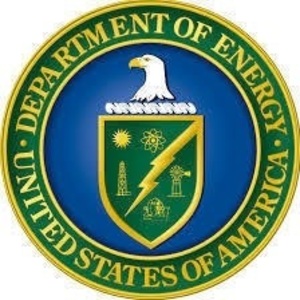DOE: 31 projects will advance fundamental science for bioenergy




June 19, 2018
BY U.S. Department of Energy
On June 18, the U.S. Department of Energy announced $40 million in funding for 31 projects to advance research in the development of microbes as practical platforms for the production of biofuels and other bioproducts from renewable resources.
The projects will further the ongoing revolution in biology and biotechnology, and will increase our understanding of how nature’s sophisticated production capabilities at the cellular level can be harnessed to produce sustainable, clean, and efficient fuel as well as drive other industrial production processes.
“In coming years, the revolution in biotechnology and bio-based production methods are expected to transform the face of industry,” said U.S. Secretary of Energy Rick Perry. “These projects will help ensure that America continues to lead the way in developing the knowledge and expertise needed to capitalize on the many new opportunities of the emerging bioenergy fields.”
Advertisement
Over the past decade, DOE-supported scientists have identified and modified a wide range of microbial organisms to be production workhorses, transforming microbes into effective platforms for the generation of fuels and other useful precursor chemicals from renewable plant feedstocks.
Using today’s most advanced techniques of genomics-based systems biology, these projects seek both to improve the production capabilities of already identified organisms and to identify new organisms as potential production platforms. They will modify the organisms to maximize their effectiveness as producers.
Organisms under study range from yeast and fungi to cyanobacteria and rare thermophilic microbes that thrive at extremely high temperatures. Products to be produced range from biofuels to alcohols to other valuable precursor chemicals with multiple possible downstream applications.
In addition to the projects focused on specific microorganisms, approximately one third of the projects are focused on developing and improving the essential imaging tools for this work of characterizing and modifying organisms on a microscopic scale. Several of the projects also seek to enhance capabilities for real-time “in situ” imaging. This means observing in real-time how nature’s microscopic processes unfold in detail at the cellular level.
Advertisement
Projects were chosen by competitive peer review under two separate DOE Funding Opportunity Announcements, one for Systems Biology of Bioenergy-Relevant Microbes and another for Bioimaging Research for Bioenergy, both sponsored by the Office of Biological and Environmental Research within the Department’s Office of Science.
Total funding is $40 million for projects lasting three years in duration. The list of projects and more information can be found HERE and HERE.
Related Stories
The U.S. Department of Energy Bioenergy Technologies Office (BETO) announced up to $23 million in funding to support research and development (R&D) of domestic chemicals and fuels from biomass and waste resources.
The U.S. DOE has announced its intent to issue funding to support high-impact research and development (R&D) projects in two priority areas: sustainable propane and renewable chemicals and algal system cultivation and preprocessing.
Sens. Sherrod Brown, D-Ohio, and Pete Ricketts, R-Neb., in August introduced the Renewable Chemicals Act, a bill that aims to create a tax credit to support the production of biobased chemicals.
The Chemical Catalysis for Bioenergy Consortium, a consortium of the U.S. DOE’s Bioenergy Technologies Office, has launched an effort that aims to gather community input on the development of new biomass processing facilities.
USDA on March 8 celebrated the second annual National Biobased Products Day, a celebration to raise public awareness of biobased products, their benefits and their contributions to the U.S. economy and rural communities.
Upcoming Events










